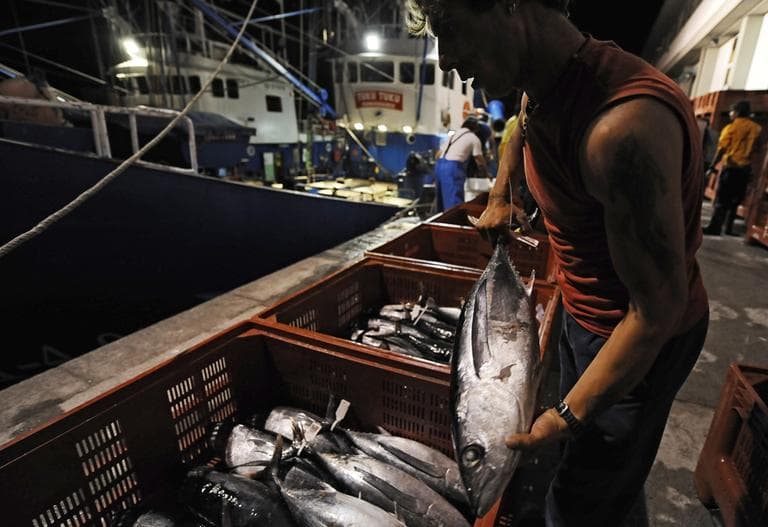Advertisement
Lack Of Regulations Leads To Fish Mislabeling, Industry Abuses
Resume
A two-part series in The Boston Globe exposes deceptive practices in the wholesaling and marketing of seafood in Boston-area supermarkets and restaurants. The tuna you’re eating at that sushi restaurant may not actually be tuna, and in fact may instead be a fish that causes illness.
Here's an excerpt from the report:
Suppliers such as Goldwell (Trading Corp.) use the names interchangeably, contributing to a little-known but pervasive problem in the international seafood industry: lower-quality and less expensive fish mislabeled as desirable species. Some distributors do this unknowingly, while others intend to deceive. Lax government oversight, industry indifference, and consumer ignorance allow mislabeling to flourish.
Fish misidentification is especially common at sushi restaurants, partly because they use various names for the same fish. The confusion can be compounded by packaging labels written in other languages that are incorrectly translated into English.
A Globe investigation detailed yesterday found that mislabeling of certain fish is endemic in the Boston area. DNA testing showed that 32 area restaurants that serve sushi - including Takara Sushi in Newton, Basho Japanese Brasserie in Boston, and Kowloon in Saugus - sold misnamed fish. For instance, tilapia stood in for red snapper, and farmed hybrid bass was identified as wild striped bass.
Overall, the testing revealed that nearly half of 183 fish samples collected at restaurants and supermarkets were not the species ordered.
Guests:
- Jenn Abelson, business reporter The Boston Globe
- Andy Husbands, owner and chef, Tremont 647
- Jasper White, chef and restaurateur, Summer Shack
- Alex Hay, co-owner, Mac's Seafood
More:
This program aired on October 24, 2011.